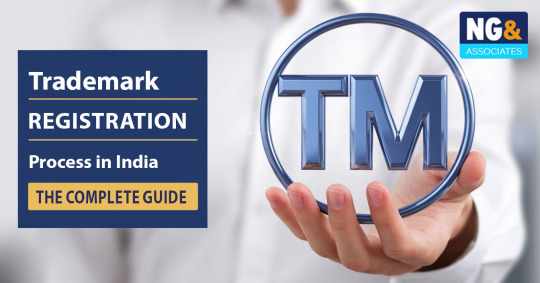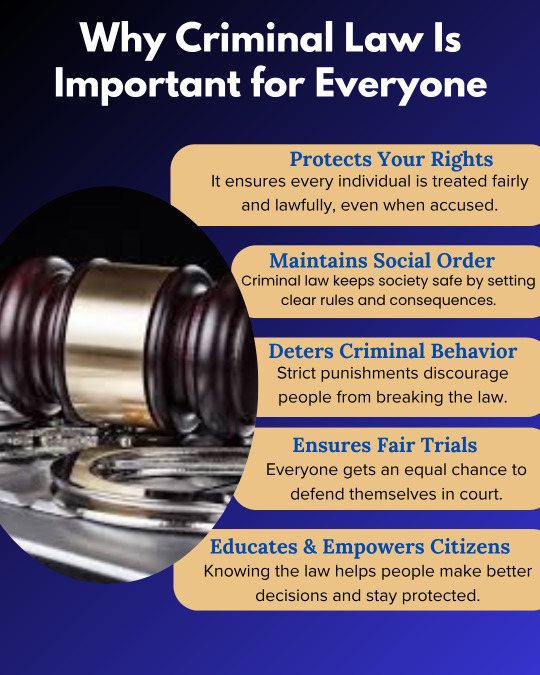#LegalProtection
Explore tagged Tumblr posts
Text
"Constitution Matters"
The Eighth Amendment's Role in Upholding Justice and the Warning Against its Erosion"
Welcome once again to "Constitution Matters," where we delve into the core principles of the United States Constitution and the significance of its amendments. In this segment, we continue our exploration of the Eighth Amendment, a cornerstone of justice and human rights, while also considering the warning it carries against potential erosion.
The Eighth Amendment: A Pillar of Justice and Humanity
The Eighth Amendment, found within the Bill of Rights, stands as a testament to our commitment to justice and human dignity. It reads:
"Excessive bail shall not be required, nor excessive fines imposed, nor cruel and unusual punishments inflicted."
This amendment, concise yet profound, plays a pivotal role in shaping a just and humane society. Here's a recap of its critical importance:
1. Protection Against Cruel and Unusual Punishment:
Central to the Eighth Amendment is its prohibition of "cruel and unusual punishments." It serves as a moral compass, preventing the abuse of power and ensuring that our criminal justice system respects the inherent dignity of every individual, even those who have committed crimes.
2. Curbing Excessive Bail and Fines:
The amendment also addresses the issue of excessive bail and fines, ensuring that financial penalties remain proportionate to the alleged offense and that bail is not used as a tool for punishment rather than securing a defendant's appearance in court.
3. Adapting to Evolving Standards of Decency:
The language of the Eighth Amendment adapts to changing societal standards of decency. It reminds us that what was once considered acceptable punishment may no longer align with our contemporary values of compassion, fairness, and respect for human rights.
4. Upholding Human Rights:
Beyond its legal implications, the Eighth Amendment underscores our commitment to upholding fundamental human rights. It sends a resounding message that, even in the face of criminal actions, we stand firm in our values of compassion, fairness, and respect for the dignity of each person.
5. Challenging Injustice:
The Eighth Amendment empowers individuals to challenge harsh or degrading treatment within the criminal justice system. It provides a legal pathway to address punishments that cross the boundary into cruelty, holding authorities accountable for their actions.
6. Encouraging Rehabilitation:
By discouraging excessive punishment and cruelty, the Eighth Amendment encourages a focus on rehabilitation within the criminal justice system. It acknowledges that our goal should be to help individuals reintegrate into society as responsible, law-abiding citizens.
A Warning Against Erosion:
While the Eighth Amendment stands as a beacon of justice, its interpretation and application have been a subject of ongoing debate and legal scrutiny. Perhaps even more concerning is the growing call by some to amend or weaken its protections.
Such attempts to "amend" the Constitution to eliminate or dilute these essential protections should serve as a clear warning. These actions run the risk of undermining the rule of law, eroding the principles of justice and human rights that our nation was built upon, and compromising the very essence of our Constitution.
In conclusion, the Eighth Amendment is not only a pillar of justice but also a reminder of our commitment to upholding human dignity and the rule of law. It carries an unequivocal warning against any attempts to weaken its protections, urging us to defend these fundamental principles that form the bedrock of our society.
As we continue our exploration of "Constitution Matters," let us remain steadfast in our dedication to justice, human rights, and the preservation of our constitutional safeguards.
Join us in our next installment as we delve further into the enduring significance of our Constitution.
#ConstitutionMatters#EighthAmendment#Justice#HumanRights#RuleOfLaw#LegalProtection#Amendment#BillOfRights#CriminalJustice#Fairness#HumanDignity#Safeguards#Warning#ConstitutionalRights#LegalPrinciples
2 notes
·
View notes
Text

How to Legally Protect Your Home During Redevelopment Projects
1. Check Builder’s Credentials
Make sure the builder is registered, financially stable, and has a good track record with past projects.
2. Review the Redevelopment Agreement
Read all terms carefully. Ensure your flat number, area, possession date, and compensation are clearly mentioned.
3. Appoint a Legal Advisor
Always consult a legal expert to review documents before signing. Don’t rely only on the builder’s promises.
4. Ensure All Permissions Are in Place
Verify that the project has approvals from SRA, BMC, and other relevant authorities before vacating your home.
5. Ask for a Bank Guarantee
This gives you financial protection in case the builder delays or abandons the project.
#SRARedevelopment#RedevelopmentRights#LegalProtection#MumbaiRealEstate#Best law firm in Mumbai#Property dispute lawyers in Mumbai#Sra lawyers in Mumbai
0 notes
Text
"Secure Your Edge in the Market"

Don’t let a missed patent kill your business. Our Novelty Search includes non-patent literature—like industry blogs & manuals—that can block your patent rights.
See what’s already out there. Beat the competition.
Connect with us Today
#PatentLandscape#InventorsEdge#StartupLaw#LegalProtection#InnovationMatters#PatentHelp#ProductDevelopment#PatentCheck
0 notes
Text

🛡️ Is your brand truly protected? Your logo, name, and identity deserve more than just recognition — they deserve legal protection. 🔒
With millions of brands competing, trademark registration is your first step to stand out and stay safe. 🚀
✅ Prevent Copycats ✅ Own Your Brand Identity ✅ Build Consumer Trust
📲 Contact us at +91 9040077326 🌐 Visit: www.lexprotector.com
Trademark your identity today — before someone else does.
#TrademarkRegistration#BrandProtection#SecureYourBrand#LexProtector#TrademarkYourBrand#EntrepreneurTips#StartUpIndia#LegalProtection
0 notes
Photo

Charged with possession or distribution? 🚨 Don’t let one mistake define your life. Joseph Horowitz fights aggressively for your rights and tailors every case to YOU. His courtroom strategy has helped clients walk away from serious charges. 🔍💥 Learn more here: https://bit.ly/43cyuq4
0 notes
Text
How Business Law Attorneys Can Prevent Costly Legal Mistakes
Business law attorneys help safeguard your business by reviewing contracts, ensuring regulatory compliance, and resolving disputes before they escalate—saving you from costly legal errors and liabilities. Stay protected with expert legal guidance.

#AttorneysRealty#RealEstate#BusinessLaw#LegalAdvice#BusinessAttorney#CorporateLaw#LegalProtection#SmallBusinessSupport
0 notes
Text
Are Telescopic Batons Legal in California? Here’s the Truth

If you live in California and care about your safety, you’ve probably wondered: Can I legally carry a telescopic baton?
The answer is… yes — but it wasn’t always that way.
Thanks to a recent court ruling, California’s old ban on telescopic batons was struck down. That means civilians can now legally own and carry them for self-defense. These expandable batons fold down small and open quickly, making them easy to carry discreetly in a purse, backpack, or car.
💡 Just remember — while they’re legal to own and carry, you still need to use them responsibly. And if you’re a security guard, the rules are different (you still need a baton permit).
Want to see what telescopic baton laws in California mean for self-defense? Click to learn more.
#safetyfirst#californialaw#telescopic#legalprotection#selfdefense#everydaycarry#tactical gear#personalprotection
0 notes
Text
Trademark Registration in India: Essential for Brand Protection and Recognition
Trademark registration is the process of obtaining legal protection for a brand name, logo, or slogan. By registering a trademark, businesses secure exclusive rights, ensuring that their brand identity remains protected from unauthorized use. This legal protection enhances brand recognition, builds customer trust, and strengthens your business’s position in the market.

Why Is Trademark Registration Critical for Your Business?
Registering your trademark is essential for any business looking to secure its brand identity. Here are the key reasons why trademark registration is vital:
Protects Your Brand Identity: Trademark registration prevents others from using your brand name, logo, or slogan, safeguarding your unique business identity.
Exclusive Legal Rights: Once registered, your business gains exclusive legal rights to your brand, giving you full control over its use.
Builds Business Credibility: A registered trademark elevates your brand’s credibility and trustworthiness, helping to attract more customers and establish a loyal customer base.
Enables Legal Action Against Infringement: Trademark registration allows you to take legal action against any parties using your brand without permission, providing a strong defense against infringement.
Creates an Intangible Asset: A trademark becomes an intangible asset for your business, which can add value to your brand in the marketplace and increase overall business worth.
Documents Required for Trademark Registration
To successfully apply for trademark registration, you’ll need to prepare the following documents:
Applicant’s Name, Address, and Nationality
Business Type (Company, Individual, Startup, MSME)
A Soft Copy of Your Brand Logo (if applicable)
Trademark Class under which the registration is being filed
Signed Form-48 (Trademark Authorization Letter)
Power of Attorney (if applying through an agent)
Step-by-Step Procedure for Trademark Registration in India
Follow this simple process to apply for trademark registration:
Trademark Search Before applying, conduct a trademark search on the IP India Website to check for any existing trademarks that might conflict with yours. This ensures that your application has the highest chance of success.
Filing the Trademark Application You can file the application either online or offline:
Online Application: Use the official e-filing system at IP India.
Offline Application: Visit the Trademark Registry Offices in Delhi, Mumbai, Kolkata, Chennai, or Ahmedabad.
Examination by the Trademark Office After filing, a trademark examiner reviews the application to ensure compliance with trademark laws and regulations. If there are no issues, the application proceeds to the next step.
Publication in the Trademark Journal If the application passes the examination, it is published in the Trademark Journal for four months to allow public opposition.
Trademark Registration Certificate If no objections are raised, your trademark is officially registered, and you will receive your trademark registration certificate.
How to Check Your Trademark Registration Status?
You can check the status of your trademark registration online at the IP India Trademark Search portal. Enter the application number to track the progress of your registration.
Frequently Asked Questions (FAQs) on Trademark Registration
1. What is the cost of registering a trademark in India? The trademark registration fees vary depending on the applicant type:
Startups/Individuals/MSMEs: ₹4,500
Companies/LLPs: ₹9,000
2. How do I check if my trademark is available? Use the Trademark Registration Check feature on the IP India Trademark Search portal to see if your trademark is already registered.
3. What happens once my trademark is registered? Once registered, you have exclusive rights to your trademark for 10 years, which can be renewed indefinitely.
4. How long does it take to register a trademark in India? The process typically takes 12-18 months if there are no objections or complications during the registration process.
5. Where can I apply for trademark registration? You can apply online via the IP India Portal or visit one of the Trademark Registry Offices located in Delhi, Mumbai, Kolkata, Chennai, or Ahmedabad.
Get Expert Trademark Assistance
Protect your brand and ensure legal protection with NG & Associates. Our team of experts specializes in trademark registration and provides legal support to ensure that your brand is safe from infringement. Contact us today to register your trademark and safeguard your business identity!
#TrademarkRegistration#BrandProtection#TrademarkIndia#IPIndia#LegalProtection#BusinessIdentity#BrandRecognition
0 notes
Text

Don't underestimate the value of your IP. Secure it today.
Your intellectual property (IP) is more than just an idea—it's your competitive edge, your brand identity, and often, your most valuable asset.
Whether it’s a unique product design, a groundbreaking invention, or original content, leaving it unprotected puts you at risk of theft, imitation, and lost revenue.
In today’s fast-paced digital world, securing your IP isn’t optional—it’s essential. This post explores why safeguarding your intellectual property is a smart business move and how taking action today can save you from legal and financial headaches tomorrow.
📌 Follow IP Consulting Group for more IP-related updates.
💼 IP Consulting Group is the right choice to fulfill your needs!
Contact Us
DC: +1 (202) 666-8377 MD: +1 (240) 477-6361 FL +1 (239) 292–6789 Website: https://www.ipconsultinggroups.com/ Mail: [email protected] Headquarters: 9009 Shady Grove Ct. Gaithersburg, MD 20877 Branch Office: 7734 16th St, NW Washington DC 20012 Branch Office: Vanderbilt Dr, Bonita Spring, FL 34134
#IPConsultingGrop#IntellectualProperty#IPProtection#ProtectYourIdeas#SecureYourIP#BrandProtection#InnovationMatters#LegalProtection#CreativeRights#BusinessAssets#TrademarkYourBrand
0 notes
Text

Need a trusted bail bondsman? Get quick and professional bail bonds to secure your release or that of a loved one. Available 24/7, we provide fast, confidential, and affordable assistance to help you navigate the legal process with ease. Call now! Visit our website for more details>> https://tinyurl.com/46xwtbsd
#bailbondsman#bailbonds#legalhelp#fastrelease#24hrbail#bailassistance#courtservices#legalprotection#affordablebail#trustedbondsman
0 notes
Text

📌 Why Criminal Law Is Important for Everyone
🛡️ 1. Protects Your Rights It ensures every individual is treated fairly and lawfully, even when accused.
⚖️ 2. Maintains Social Order Criminal law keeps society safe by setting clear rules and consequences.
🚨 3. Deters Criminal Behavior Strict punishments discourage people from breaking the law.
👨⚖️ 4. Ensures Fair Trials Everyone gets an equal chance to defend themselves in court.
📚 5. Educates & Empowers Citizens Knowing the law helps people make better decisions and stay protected.
https://elixirlegalservices.com/practice-area/criminal-litigation/
#CriminalLaw#LegalAwareness#LegalTips#IndianLaw#SocialJustice#CriminalJustice#LegalRights#LawForAll#LegalProtection#CriminalLawIndia#Criminal justice law firms in Mumbai#Best Criminal law firm in Mumbai
0 notes
Text
The Role of Trademarks in Building Brand Identity

Establishing a unique brand identity and recognition is vital for a company's success in the highly competitive modern business environment. The most effective approach to protecting and enhancing brand identity involves the use of trademarks. A trademark functions as a legal tool to protect distinct company names along with logos and slogans and other special signs which separate businesses from their rivals. Trademarks do not directly build trust; they provide recognition and legal protection, which can indirectly contribute to trust while maintaining market consistency and boosting customer brand loyalty.
What is a Trademark?
Businesses can establish ownership of their distinct identities through symbols, words, phrases, designs or these elements to identify their products or services. By serving as a unique identifier, a trademark helps customers recognize specific brands easily. Through trademark registration, stakeholders can establish ownership of their marks, protecting them from competitors who may attempt to mislead customers with similar marks.
The Importance of Trademarks in Brand Identity
A trademark is more than just a legal requirement—it is a vital part of a brand's identity. Here’s how trademarks contribute to building and reinforcing brand identity:
1. Establishing a Unique Brand Presence
Successful branding requires distinct characteristics. Conducting trademark registration safeguards the distinctive brand identity so competitors cannot utilize the same or comparable marks in the market. A strong trademark enhances brand recognition and helps create a lasting impression on consumers.
2. Enhancing Brand Recognition
Brand recognition largely depends on trademarks. The right combination of logo design and slogan together with a unique brand name changes into common symbols which represent high standards and strong reliability. Customers recognize established trademarks which immediately brings to mind both the brand and its established reputation. Instant brand recognition can enhance familiarity, but trust and strong customer attachment depend on factors like quality, customer experience, and brand reputation.
3. Building Consumer Trust and Loyalty
Customers develop trust in brands that they recognize along with good past experiences. The use of trademarks shows customers they are getting their products from legitimate sincere sources. Businesses that consistently use their trademarks create stronger brand-to-customer relationships, leading to repeat purchases and greater customer loyalty over time.
4. Providing Legal Protection Against Imitation
A brand faces its greatest challenge from unauthorized duplication of its identity. If brand elements go unprotected competitors together with counterfeiters can deceive customers by using similar brand features. A registered trademark grants businesses the legal authority to take action against unauthorized usage, thereby protecting their brand reputation and market presence.
5. Adding Value to the Business
While trademarks add value, business growth depends on multiple factors such as product quality, marketing, and customer service, along with the recognition provided by a strong trademark. A growing brand recognition and reputation turns the trademark into an asset of great worth. Businesses with well-known trademarks can generate multiple revenue streams through licensing, franchising, or even selling their trademarks. Codified brand identities foster better stakeholder participation among investors while business partners seek out establishment which maintain legal brand protection.
6. Ensuring Consistency Across Markets
The critical factor for enduring business success depends on maintaining consistent branding. A registered trademark in India does not automatically provide protection in global markets. International protection requires separate registration under agreements like the Madrid Protocol, enabling businesses to preserve brand uniformity across local, national, and international markets. Brand credibility strengthens while a global presence forms when businesses maintain consistent features across worldwide operations.
Steps to Register a Trademark in India
For businesses looking to secure their brand identity in India, trademark registration is a structured process:
Trademark Search: Conduct a search on the Indian Trademark Registry website to check the availability of the desired mark. A basic search is helpful but not always conclusive; a professional trademark attorney is recommended for a comprehensive clearance search.
Application Filing: Submit a trademark application with details like brand name, logo, and business classification.
Examination: The application undergoes scrutiny by the trademark office to check for conflicts or objections.
Publication in Trademark Journal: If approved, the mark is published in the journal for public objection.
Registration: If no objections are raised, the trademark moves toward registration, but final approval from the trademark authority is still required to grant exclusive rights to the owner.
Conclusion
A trademark protects brand identity but does not create it—branding strategies and marketing efforts shape brand identity, making it a valuable corporate instrument for businesses. The protection of the brand uniqueness through trademark registration achieves multiple benefits by creating instant recognition while increasing public trust in addition to boosting business value. In today’s competitive world, brand uniqueness is crucial, making trademark registration an essential tool for securing long-term success.
Businesses need to protect their trademarks because this action enables them to sustain market competitiveness and develop enduring bonds with their customer base.
#Trademark#BrandIdentity#BusinessGrowth#LegalProtection#TrademarkRegistration#IntellectualProperty#BrandTrust
0 notes
Text

🔏 Secure Your Brand’s Identity with Legal Dev! 🚀
Trademark Registration gives you exclusive rights, legal protection, and brand credibility a must for every business! ✅ . . 📍 Register Your Trademark Today with Legal Dev! 🏆 ☎️Call us at +91-8588808388 🔮Visit at https://legaldev.in/
#LegalDev#TrademarkRegistration#ProtectYourBrand#BusinessSecurity#BrandTrust#TrademarkYourBusiness#LegalProtection
0 notes
Photo

Charged with possession or distribution? 🚨 Don’t let one mistake define your life. Joseph Horowitz fights aggressively for your rights and tailors every case to YOU. His courtroom strategy has helped clients walk away from serious charges. 🔍💥 Learn more here: https://bit.ly/3Yx5K8o
0 notes
Text
Why Your Business Needs an Intellectual Property Lawyer: Protecting Your Most Valuable Assets
In today’s fast-paced and highly competitive business world, protecting your ideas, inventions, and creative works is just as important as safeguarding your physical assets. Intellectual Property (IP) plays a crucial role in maintaining a company’s competitive edge, but many businesses overlook the need for a dedicated intellectual property lawyer. Without proper legal protection, your business could lose its most valuable assets, putting your hard-earned success at risk.

What is Intellectual Property, and Why Does It Matter? Intellectual Property is the creation of the mind—like inventions, literary and artistic works, designs, symbols, names, and images—used in commerce. It is protected by law through patents, copyrights, trademarks, and trade secrets. Small, medium, and large businesses alike rely on IP protection to preserve market share and stop competitors from pilfering their ideas.
For instance, suppose you create a novel product. It's simple for a competitor to steal your concept and sell it on their own—unless you have proper legal protections in place. This is where an IP lawyer comes in handy.
Types of Intellectual Property Protection Varying types of IP need varying types of legal protection. An experienced IP lawyer will assist you in deciding which protections will best serve your business requirements.
Patents A patent protects new inventions and gives the inventor exclusive rights to manufacture, use, or sell the invention for a specific period. If you’ve developed a groundbreaking product or technology, securing a patent with the help of an intellectual property lawyer is crucial.
Trademarks Trademarks shield brand names, logos, slogans, and other identifiers that identify a company's products or services. A valid trademark prevents other companies from adopting similar branding that could cause consumer confusion. Intellectual property law firms deal in trademark registration and enforcement.
Copyrights Copyrights defend original creative works, such as books, music, films, software, and artwork. An intellectual property lawyer can register copyrights and defend them against unauthorized use on your behalf.
Trade Secrets Trade secrets are confidential business data like formulas, processes, or customer lists that provide a company with a competitive advantage. An IP attorney makes sure businesses have appropriate agreements and protections in place to preserve such valuable assets.
Why You Need an Intellectual Property Lawyer Whereas most entrepreneurs believe they can attend to IP issues by themselves, the truth is that Intellectual Property law is ever-changing and requires expertise. By hiring an intellectual property attorney, you save time, money, and hassle in the long run.
1. Steer Clear of Legal Dangers and Financial Blunders Without legal counsel, companies commit expensive IP blunders—like omitting to register trademarks, wrongly filing patents, or forgoing copyright protections. A IP attorney makes certain your IP rights are protected and enforceable through law.
2. Enforce Your IP Rights Even registered IP companies need to enforce their rights actively. An intellectual property lawyer can assist in monitoring for infringement, pursuing legal action when required, and negotiating settlements to advance your company interests.
3. Manage IP Licensing and Contracts If you wish to license your IP to other companies or form partnerships, you will require legally valid agreements. Intellectual property law firms prepare and negotiate contracts that safeguard your rights while ensuring maximum revenue potential.
4. Manage International IP Protection In today's global economy, companies need to think about IP protection outside their domestic country. A seasoned intellectual property attorney can assist you in registering international trademarks, patents, and copyrights to safeguard your brand globally.
How to Select the Best Intellectual Property Law Firm All intellectual property law firms are not the same. When selecting an IP attorney, take the following into consideration:
Experience: Find a lawyer or firm with a good history of dealing with IP cases like yours.
Specialization: Some firms specialize in patents only, while others deal with a wide variety of IP matters. Select a firm that suits your requirements.
Reputation: Look at client reviews, testimonials, and case outcomes to confirm that the firm has a success history.
Cost: Legal charges are different for everyone, so understand the price clearly before appointing an intellectual property lawyer.
Get in Touch with J.D. Sellier + Co. Looking for expert legal assistance? J.D. Sellier + Co. is here to help. Whether you need guidance on Intellectual Property, corporate law, real estate, or litigation, our experienced team is ready to assist you. For More details contact us - https://jdsellier.com/contact-us/
Final Thoughts Your company's success relies on the strength of your ideas, branding, and innovations. These assets should be a top priority to protect, and the best way to do so is by hiring an experienced intellectual property attorney. If you require patent protection, trademark registration, or legal action against IP infringement, the right IP lawyer can be the difference.
If you have not yet protected your Intellectual Property, now is the time to do so. When you work with a reputable intellectual property law firm, you are ensuring that your business is covered legally, giving you the ability to grow and innovate without ever having to fear IP theft. Visit Here More About : https://jdsellier.com/
#IntellectualProperty#IPLawyer#IntellectualPropertyLaw#IPAttorney#PatentLaw#TrademarkProtection#CopyrightLaw#BusinessLaw#LegalProtection#InnovationSecurity#BrandProtection
0 notes
Text
Massachusetts Legal Protections for Beneficiaries Facing Denied Claims

If you are a beneficiary facing a denied claim, you may be feeling overwhelmed, confused, or even angry. It's understandable to worry when your rightful claim is denied. Whether it's a life insurance policy, a health insurance claim, or an inheritance you expected, facing a denial can be a distressing experience. You might not know where to turn or what steps to take next. At our law firm, we are here to help guide you through this challenging time and ensure that your rights are protected. We know how important it is for you to receive the benefits you are entitled to, and we are here to provide the support and legal assistance you need.
Understanding Denied Claims in Massachusetts
Denial of claims can happen for many reasons. Sometimes insurance companies deny claims due to technicalities or small errors in paperwork. Other times, the reasons for denial may be more complex, such as disputes over the terms of the policy or coverage. As a beneficiary, it's essential to understand why your claim was denied before you can begin to take action. Massachusetts law provides protections for beneficiaries facing such denials, and it is important to know how these laws work and how they can help you recover what you are owed.
In Massachusetts, insurance companies must adhere to specific guidelines when handling claims. If your claim is denied, the company must provide you with a written explanation detailing the reason for the denial. This explanation is required to be clear and specific. Sometimes, the denial is due to a misunderstanding of the terms of the policy or an error in the processing of your claim. In these cases, it may be possible to resolve the matter by providing additional information or clarification.
Legal Protections for Beneficiaries in Massachusetts
Massachusetts law offers various protections to beneficiaries whose claims have been denied. One of the key protections is the right to appeal a denied claim. If your claim has been denied, you do not have to accept the decision immediately. You have the right to appeal and ask the insurance company to review its decision. It is important to understand that the appeals process can be complicated, and it is often beneficial to have legal assistance during this time.
In some cases, Massachusetts law allows beneficiaries to file a lawsuit if the claim is denied and the insurance company refuses to overturn its decision. In these situations, the courts may review the case to determine if the denial was justified. If the court finds that the denial was unfair or unreasonable, it may order the insurance company to pay the claim and potentially award additional damages.
Additionally, Massachusetts law requires insurance companies to act in good faith when processing claims. If an insurance company is found to have acted in bad faith by unreasonably denying a claim, the beneficiary may be entitled to compensation beyond the initial claim amount. This could include damages for emotional distress, legal fees, and other costs incurred as a result of the denial. It is essential to consult with an attorney who can assess whether the insurance company’s actions were in bad faith and help you pursue appropriate legal action.
The Importance of Proper Documentation
When appealing a denied claim, proper documentation is crucial. Insurance companies often deny claims due to a lack of sufficient evidence or incorrect information. As a beneficiary, it is essential to gather and submit all the necessary documents to support your case. This may include medical records, policy documents, or any other relevant information related to the claim. In some cases, it may also be helpful to provide testimony or other forms of evidence that can strengthen your case.
In addition to providing the necessary documentation, it is also important to follow the correct procedures when appealing a denied claim. There are specific deadlines and requirements for submitting an appeal, and failing to meet these deadlines can result in your appeal being dismissed. An experienced attorney can help ensure that all the necessary steps are followed and that your appeal is submitted correctly and on time.
Steps to Take After Your Claim is Denied
When your claim is denied, the first step is to carefully review the denial letter. This letter should outline the reasons for the denial and provide you with information on how to appeal. Next, gather all the relevant documentation, such as the original insurance policy, medical records, and any other supporting evidence. It is also important to note the deadlines for filing an appeal, as missing these deadlines can limit your ability to contest the denial.
Once you have gathered all the necessary documents, you can begin the appeals process. This may involve submitting a written appeal to the insurance company and providing any additional information that could support your claim. If the insurance company does not overturn its decision after reviewing your appeal, you may need to consider pursuing further legal action, such as filing a lawsuit.
How We Can Help You
At Trief & Olk, we understand how challenging it can be to deal with a denied claim. Our team is here to support you every step of the way. We can help you gather the necessary documentation, file your appeal, and, if needed, pursue legal action. Our experienced attorneys have a thorough understanding of Massachusetts law and can provide the legal guidance you need to secure a favorable outcome.
We know that dealing with a denied claim can cause significant emotional and financial stress. That is why we are committed to helping you get the compensation you deserve. Our firm will fight for your rights and ensure that you are treated fairly by the insurance company. Whether you are facing a life insurance denial, a health insurance claim dispute, or any other type of denied claim, we are here to help you navigate the legal process and protect your interests.
If you are a beneficiary facing a denied claim in Massachusetts, you do not have to go through this process alone. The attorneys at Trief & Olk are here to provide the legal support you need. We will work tirelessly to help you get the compensation you deserve. If you are ready to take the next step, contact our firm today to schedule a consultation. We understand the importance of your case and are dedicated to achieving the best possible outcome for you.
#DeniedClaims#MassachusettsLaw#LegalProtection#InsuranceDisputes#BeneficiaryRights#ClaimAppeal#TriefAndOlk#KnowYourRights#LegalSupport#InsuranceLaw
0 notes